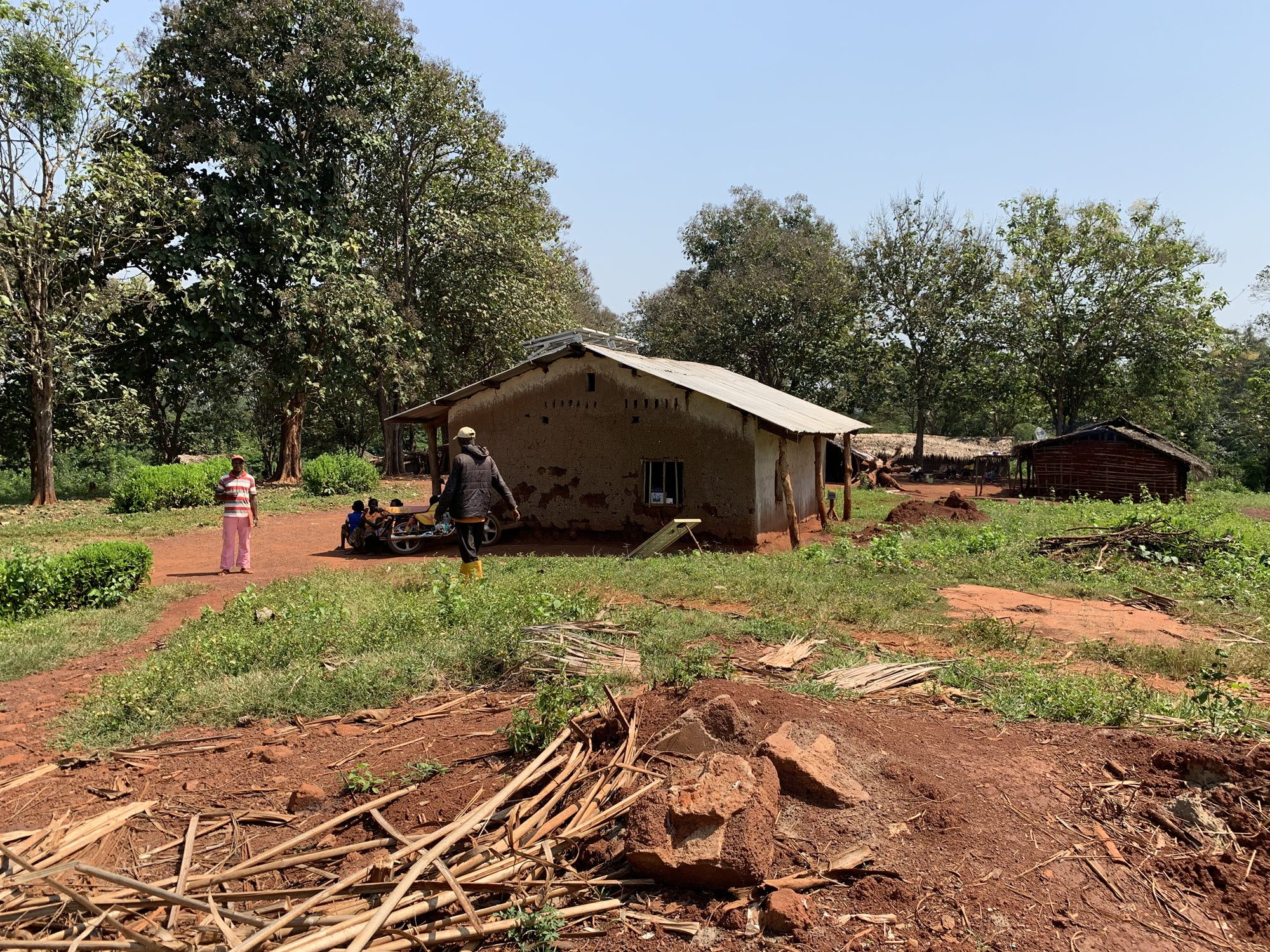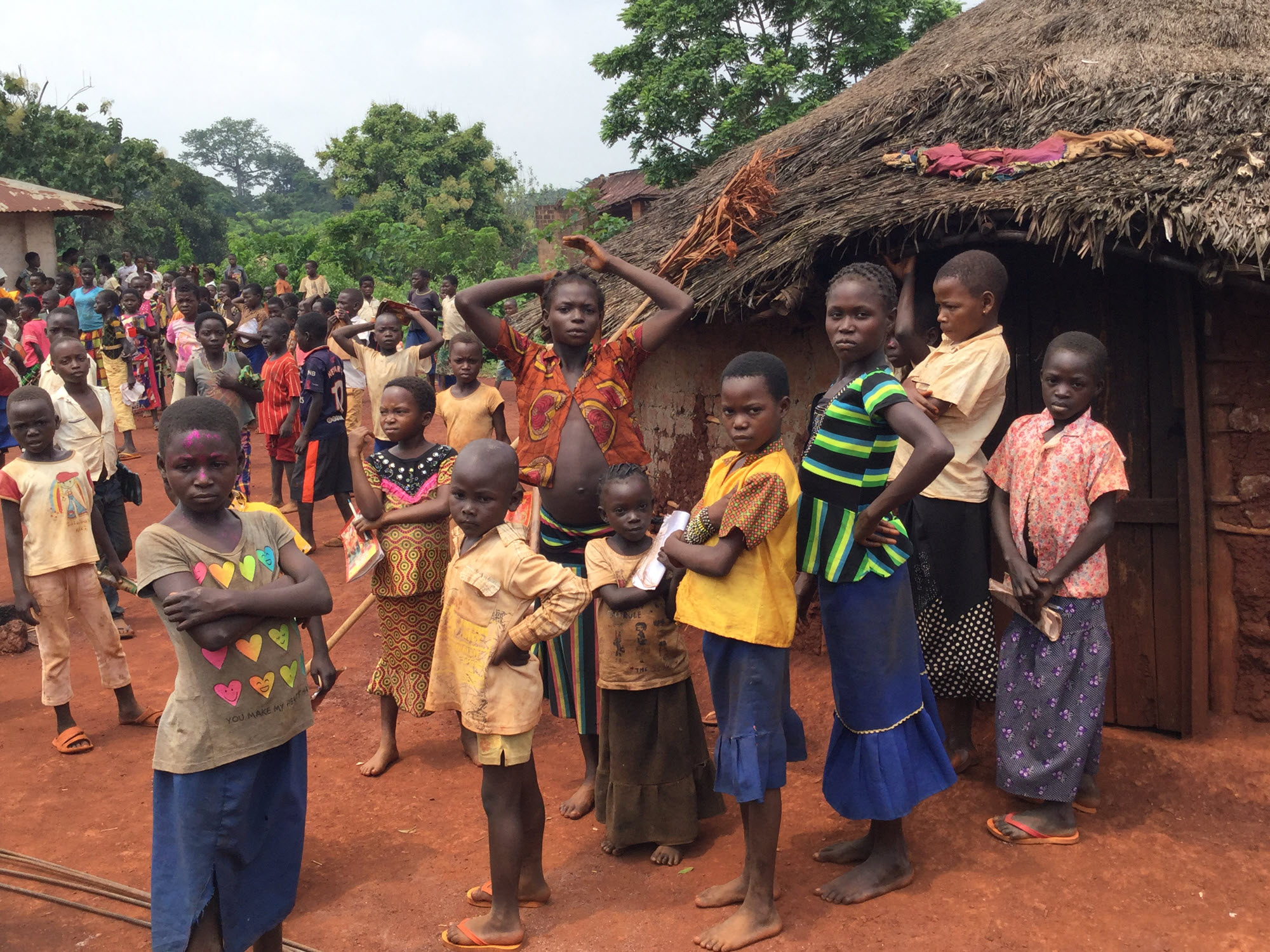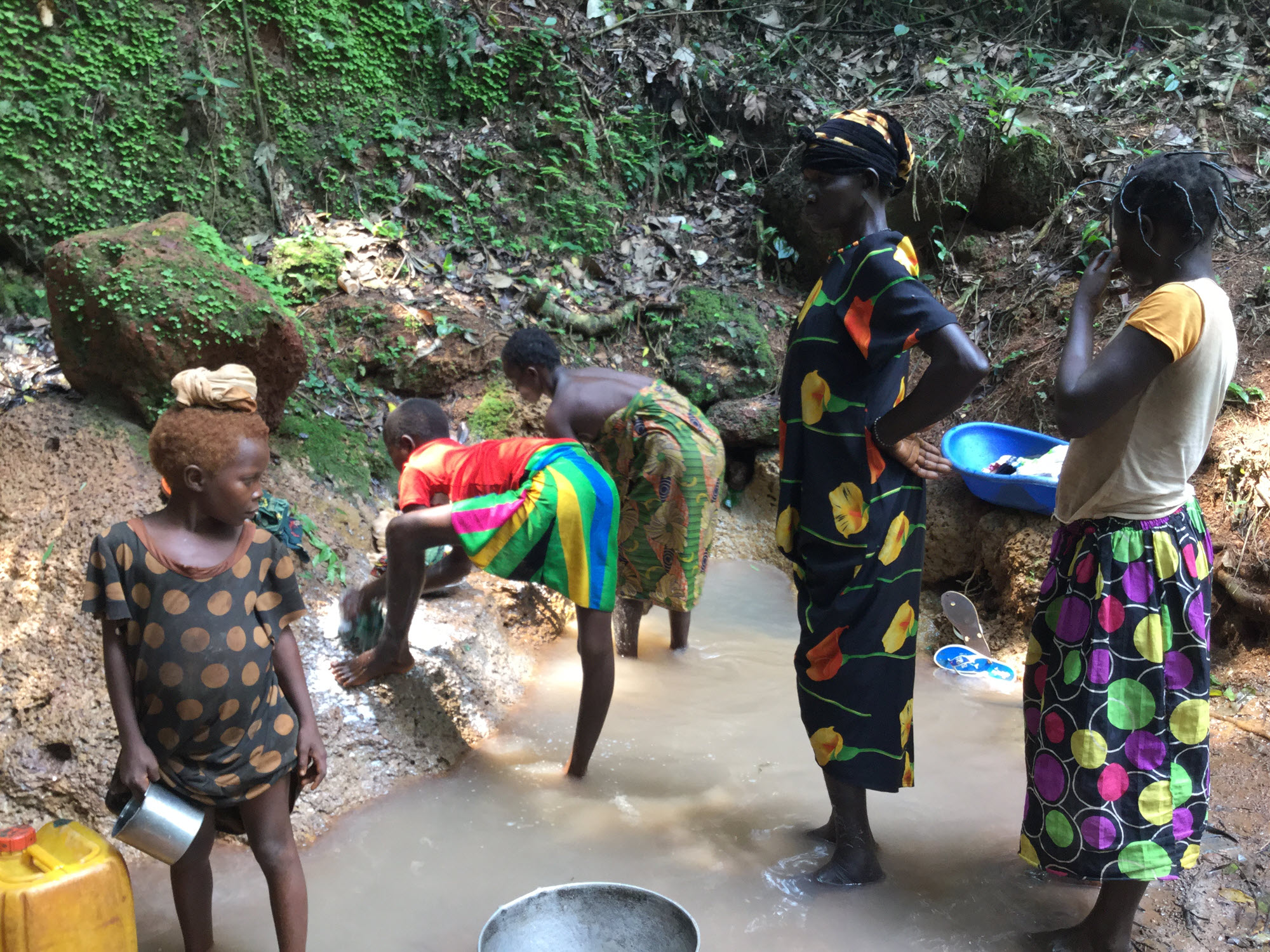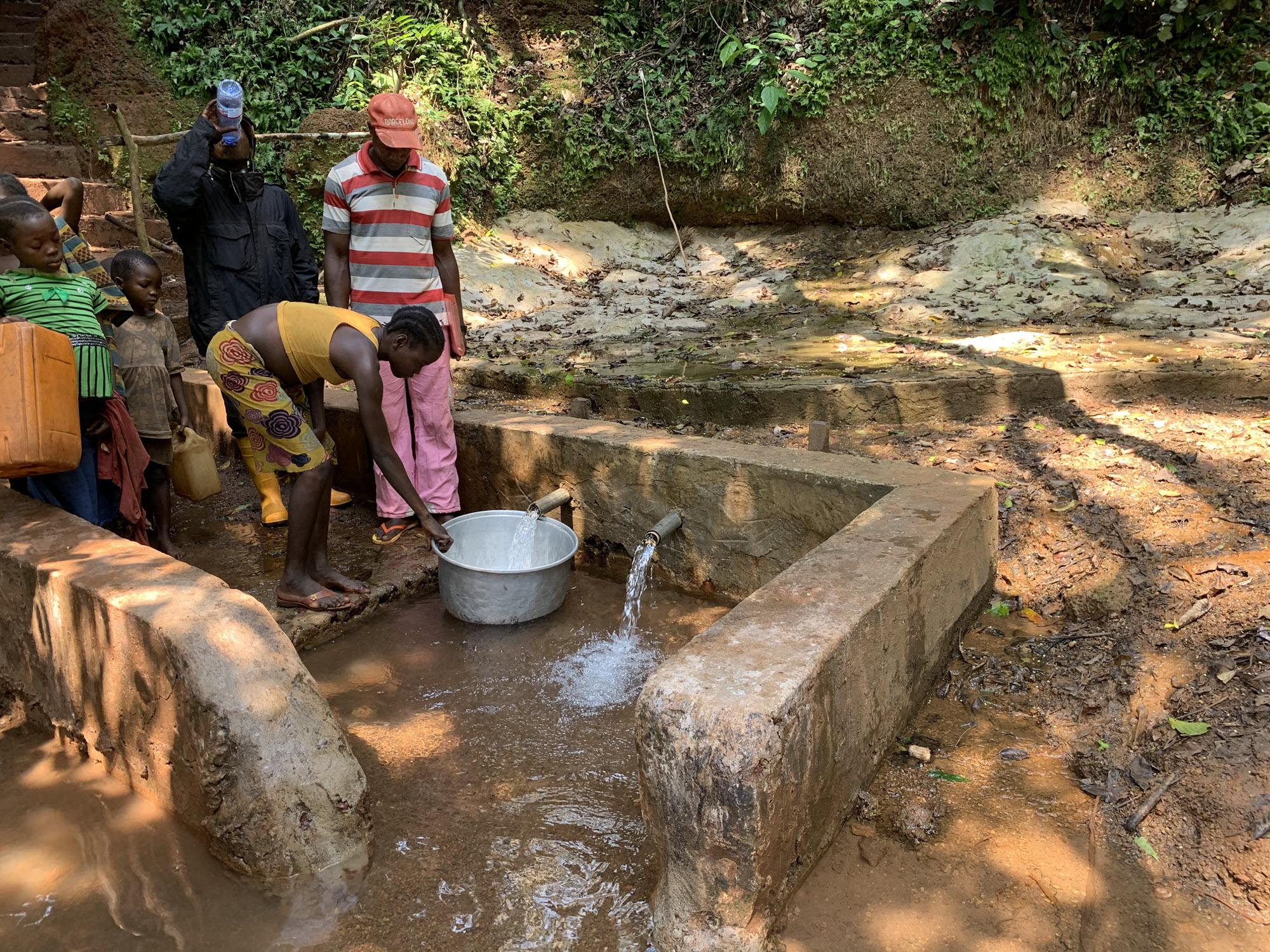
Dedicated to the welfare of the public, civil engineers are society’s unsung heroes. But no hero has the same story. Civil engineering is a global profession and community. Therefore, civil engineers can come from anywhere and take inspiration from anything.
For Tresor Moolo, that story and his inspiration both begin where he grew up – in Bau, a town in the South Ubangi province of the Democratic Republic of Congo. It’s an area where limited access to clean water drives a cycle of poverty and suffering.
It’s where Moolo has known heartbreaking loss. But it’s also where he found the love and inspiration to pursue a career in civil engineering; a career that now supports his goal to give back to his hometown and inspire others to help their own communities.
“I grew up in a region where you feel like the world is against you. Access to simple infrastructure was very difficult,” said Moolo, who now works as a civil engineer at OSEH Inc. and is an active member of the ASCE Illinois Section.
“I think it’s because there’s just so many obstacles, and it’s so difficult to overcome them. It is hard to get out and to grow when you don’t have resources available to you. Coming from an economically depressed region, I think of how hard it was for me to get to where I am, and I never gave up. If you always have hope, you can do anything.”
 Tresor Moolo
Tresor Moolo Inspiration from tragedy
Moolo lost his mother when he was just 10. She became ill and needed immediate medical attention. Transporting her to the hospital caused even more distress. At that time, Bau was 70 miles from the nearest clinic with the capacity to help her. The roads leading there were in extremely poor condition. It took two days to get there. And although she made it to the hospital, she died soon thereafter.
Two years later, the same roads delayed his father from reaching the hospital after being poisoned.
“If the roads were good when my parents died, they could’ve gotten to the hospital in two hours. If it didn’t take so much time to get there, maybe they would be alive today,” Moolo said.
From these tragedies grew curiosity. Moolo thought about how to improve roads and better the community. This inspired him to become a civil engineer.
 Tresor Moolo
Tresor Moolo Fighting for survival
After his father’s death, Moolo’s family lost their home. With his older brother absent, he was forced to raise his three younger siblings. This meant working day and night. He would start each day at 5 a.m., walking for miles to sell gallons of water. After a day of school, work began again. This time, selling diesel for lamps. Additionally, a raging war in South Ubangi turned the region into a battlefield. Every day was a fight for survival.
However, Moolo stayed focused on his dreams. He enrolled in a trade school construction program. A year before graduating, he asked local civil engineer Mowa Rene Nzambe to take him under his wing.
Nzambe was dedicated to serving people and the community, building houses for the city. He was also director of an orphanage and training center where Evangelical Free Church missionaries came to help. These missionaries encouraged Moolo to further his civil engineering education.
After befriending American missionaries, he made up his mind. He would attend a university in the United States. But first, he would have to learn English. To do this, he bought a dictionary and learned 10 words each day. He’d then practice what he learned with his newfound American friends.
Tragedy struck again when Nzambe got sick and died. But Moolo persevered and helped to care for Nzambe’s seven children, along with his own siblings.
 Tresor Moolo
Tresor Moolo Seizing new opportunities
During this time, Jerry Jameson, an American civil engineer, and Jim Snyder, a Reach Global Ministry Leader, arrived in Congo to teach local engineers how to drill and build wells. Moolo seized this new opportunity. Over two years, he helped build nine wells.
Still, his sights were set on seeking higher education. While waiting for his next opportunity, Moolo worked alongside World Vision International, building wells, bridges and houses. That opportunity came knocking when he met Naomi Norris, an American in Congo on a short-term mission trip. She told Moolo that if he continued improving his English, she’d help him get to the United States.
In August 2013, Moolo arrived in America and started the next chapter of his life. He attended Des Moines Area Community College in Iowa and lived with Norris and her family. He later moved to Chicago to marry his wife, Christine. They’d met in Congo when Moolo was working in partnership with World Vision and when Christine was teaching economic development skills to local women.
Moolo then studied structural engineering at the University of Illinois at Chicago. He also began working as a contractor for Paul Carlson Partnership, an organization supporting the growth and self-sustainment of impoverished communities in Central Africa.
For Moolo, this was a chance to give back to his home country. By engineering wells and water dwellings, he would play a critical role in breaking the cycle of poverty. But that’s easier said than done.
Water in these regions has high concentrations of bacteria that can harm the body. As most families live in poverty, many do not seek medical attention until illness becomes severe.
With contaminated water linked to so many deaths, people often have several children, not knowing how many will survive to adulthood. “On average, if you have 10 kids, only three to five grow up. The others die. It’s expected,” Moolo said.
Consequently, many children do not go to school. Good schools could cost up to $80 a month per child. But most people only get paid $50 a month. Education becomes nonessential compared with food and medicine.
These issues might seem difficult to grasp for an outsider. But having experienced these struggles firsthand, Moolo had unique insight into effectively addressing the communities’ problems.
Building with the community
Working with local people is the key to success. By providing the community with comparative data and statistics, they can begin to understand the challenges they face and begin to come up with solutions.
“We design a way to work with the community to make sure they get the right education and mindset to succeed before we can even start the project,” said Moolo. “We actually help them really see what they can do with the power they already have.”
The next step is determining the best location for a well. It must produce enough water for the entire city and be maintained by the local community after it is built.
Once plans and designs are finalized, Moolo’s team gathers volunteers. Not only would they be building the wells, they’d be gaining the skills needed to fix any future problems. “We try to show them as much as we can to put them on the path of success, so they can develop knowledge beyond that [project] to do the work themselves,” Moolo said.
His goal is to build with these communities, not simply for them.
Since 2017, Moolo has helped build 19 wells in the Democratic Republic of Congo. His mission continues in the United States, as well. Through Engineers Without Borders, Moolo connects University of Illinois at Chicago students with projects in Congo to highlight the importance of civil engineering.
“That can actually empower some of the young engineers to make an impact with their civil engineering degrees,” Moolo said.
“I believe that challenges happen to us sometimes, so we can find our purpose and see how we can make changes in the community. I would love to continue doing what I always do – invest. Invest in the community, and not just in Congo, but around the world.”



